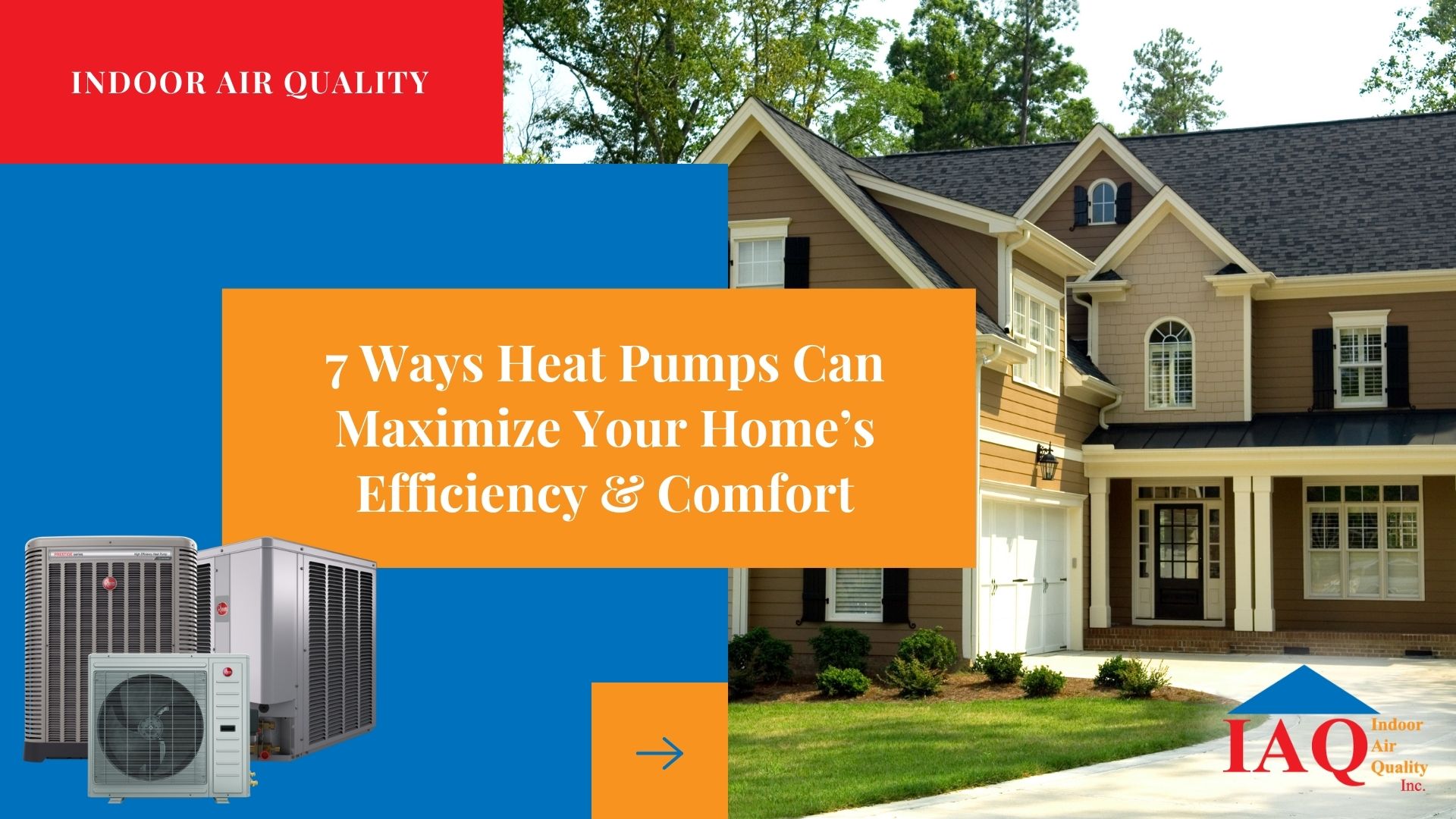Blog
7 Ways Heat Pumps Can Maximize Your Home’s Efficiency & Comfort
Homeowners are always looking for ways to increase the efficiency and comfort of their home. When it comes to heating and cooling, heat pumps provide numerous benefits that help maximize your home’s comfort while keeping things running smoothly.
How Do Heat Pumps Work?
In simple terms, the standard air heat pump works by pulling heat from one source and transferring it to a new location. Heat pumps do this through two heat exchangers. One heat exchanger produces a refrigerant that evaporates and absorbs the heat in the air. The other exchanger (coil) transfers the heated air to the room or area.
While heat pumps are a highly-efficient heating option, they do require a larger upfront investment. Additionally, in certain climates, they require a supplemental heat source.
7 Benefits of Heat Pumps
Heat pumps provide several benefits, including the following.
1. Dual Functionality:
Unlike traditional heating or cooling systems, heat pumps offer both heating and cooling options. This dual functionality makes it convenient to switch between modes as seasons change without the need for separate systems.
2. Consistent Temperature:
Heat pumps are adept at maintaining a steady temperature within your home, eliminating hot or cold spots and ensuring every room is just right.
3. Energy Savings:
By transferring heat rather than generating it, heat pumps operate on less energy, leading to potential savings on utility bills.
4. Greener Living:
The energy efficiency of heat pumps means a more environmentally friendly option for temperature management.
5. Smart Home Ready:
Pair with home automation for temperature perfection at your fingertips.
6. Air Purity:
Integrated filters enhance air quality by trapping unwanted allergens and particles. In addition, heat pumps operate without combustion, reducing the likelihood of carbon monoxide buildup.
7. Low Maintenance Needs
Heat pumps are known for their longevity and require fewer repairs compared to traditional HVAC systems.
What to Look For in a Heat Pump
There are two primary ratings you should look for when considering a heat pump.
1. The Heating Season Performance Factor (HSPF)
The HSPF rating on a heat pump evaluates the relationship between energy use and heat output. In a few words, it rates a pump’s heating efficiency. Typically, efficient heat pumps rate between 8-10.
2. Seasonal Energy Efficiency Ratio (SEER)
The SEER rating evaluates cooling efficiency. It compares energy use and heat removal.
Both ratings are important and should be carefully considered based on your home’s size, location, climate, layout, etc.
Your heat source plays a large role in your home’s indoor air quality, so it is important that you take the time to properly choose and maintain it.





